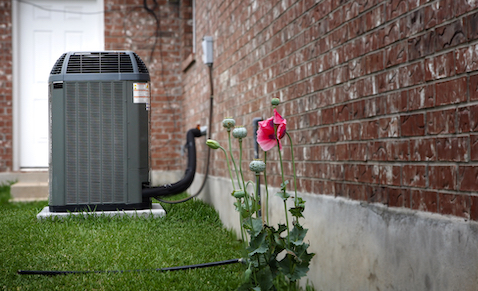
Effective Ways to Manage Humidity and Dry Air in Your Home
Your home should be a place of comfort and refuge, providing a haven from the outside elements. One crucial aspect of creating a pleasant indoor environment is managing humidity and combating dry air. This task falls under the purview of your HVAC (Heating, Ventilation, and Air Conditioning) system, which plays a pivotal role in maintaining ideal humidity levels and preventing dry air in your home. In this blog, we’ll explore the importance of managing humidity and dry air, and discuss various ways to achieve optimal comfort through your HVAC system.
The Impact of Humidity and Dry Air
Humidity and dry air levels can have a significant impact on your comfort and overall well-being within your home. Let’s take a closer look at the effects of both high and low humidity:
High Humidity
- Promotes mold and mildew growth.
- Can make your home feel stuffy and uncomfortable.
- Can cause health issues, such as respiratory problems and allergies.
- Can damage wood furniture and structures over time.
Low Humidity (Dry Air)
- Leads to dry skin, irritated eyes, and chapped lips.
- Aggravates respiratory conditions, like asthma and allergies.
- Causes static electricity, which can harm electronics and textiles.
- Cracks wood floors, furniture, and molding.
Now that we understand the importance of maintaining optimal humidity levels, let’s explore how your HVAC system can help manage them.
Invest in a Humidifier
- Adding a humidifier to your HVAC system can significantly increase indoor humidity levels during dry winter months.
- Humidifiers are available in different types, including whole-house humidifiers that can be integrated with your HVAC system or portable units for specific rooms.
- Proper maintenance and regular cleaning of your humidifier are essential to prevent mold or bacterial growth.
Utilize a Dehumidifier
- In regions with high humidity levels, a dehumidifier can be a lifesaver.
- Dehumidifiers remove excess moisture from the air, preventing mold growth and creating a more comfortable environment.
- You can integrate a whole-house dehumidifier with your HVAC system or use portable units for specific areas.
Choose the Right HVAC System
- When selecting or upgrading your HVAC system, consider one with built-in humidity control features.
- Variable-speed air handlers and multi-stage systems can better regulate indoor humidity levels.
- Consult with an HVAC professional to determine the best system for your specific needs.
Regular Maintenance
- Proper HVAC system maintenance, including cleaning or replacing filters, ensures efficient operation and helps maintain ideal humidity levels.
- Schedule annual HVAC inspections to identify and address any issues affecting humidity control.
Seal Leaks
- Properly sealing gaps and leaks in your home’s insulation and ductwork can help maintain consistent humidity levels.
- Reducing the exchange of outdoor air with indoor air will prevent unwanted moisture infiltration.
Managing humidity and combating dry air in your home is essential for your comfort, health, and the preservation of your home’s structure and contents. Your HVAC system plays a vital role in achieving and maintaining ideal humidity levels. Whether you need to add a humidifier, dehumidifier, or upgrade your HVAC system, investing in these solutions can greatly improve your indoor environment. Remember that regular maintenance and professional guidance are crucial in ensuring your HVAC system operates at peak efficiency, providing you with the comfort and air quality you deserve.
McMackin Mechanical has year of experience ensuring customers have a safe, comfortable home. We work with our clients to ensure that their existing systems are working at peak efficiency, or that any new system is right for them. Interested in speaking with one of our professionals? Give our office a call today to get started.



